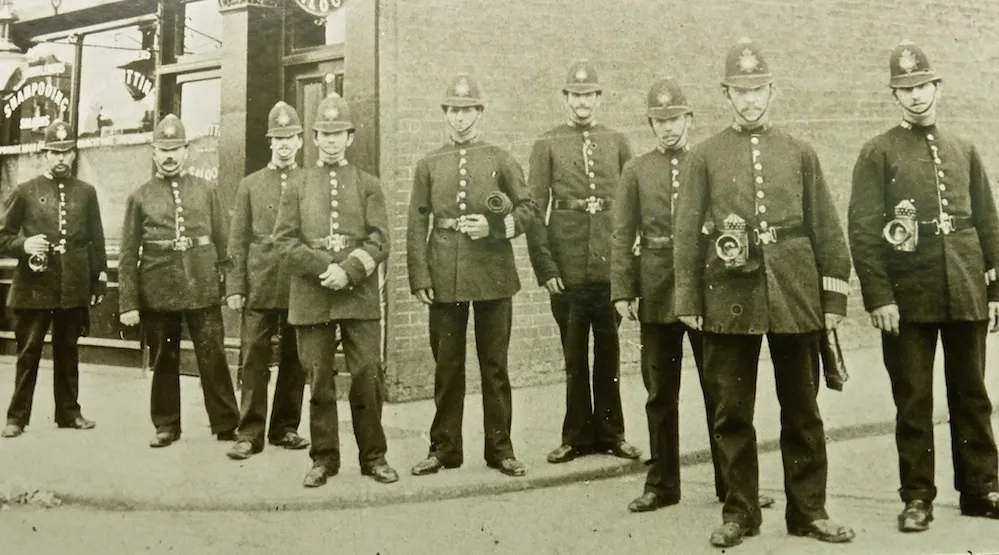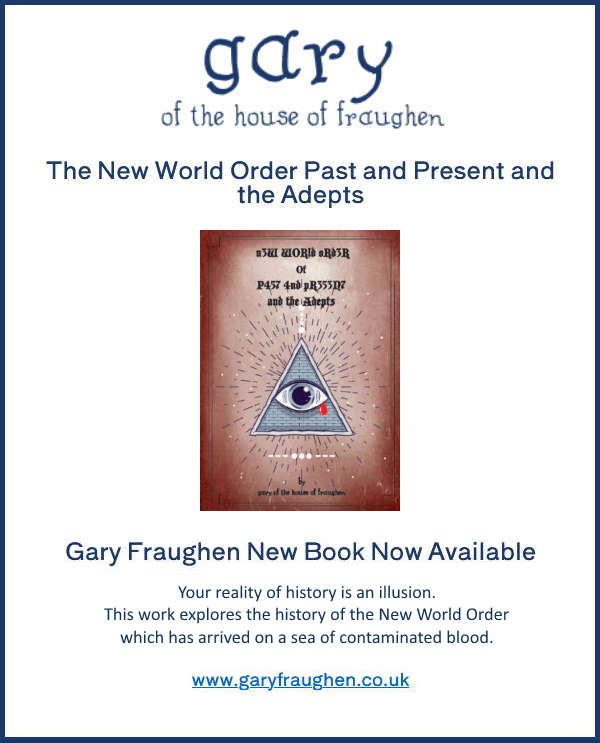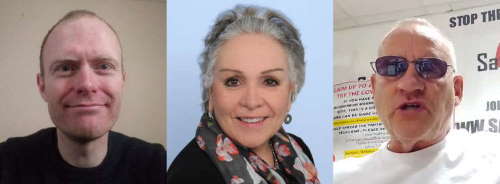How far have British policing standards slipped?
Thu 8:41 am +00:00, 27 Jun 2024 8
The 9 Principles of Policing were, apparently, established by Robert Peel and his associates back in 1829, with the “General Instructions” being issued to each constable. The policing principles were expanded, as below, in the 1948 book, A Short History of the British Police by Charles Reith.
1. To prevent crime and disorder, as an alternative to their repression by military force and severity of legal punishment.
2. To recognise always that the power of the police to fulfil their functions and duties is dependent on public approval of their existence, actions and behaviour, and on their ability to secure and maintain public respect.
3. To recognise always that to secure and maintain the respect and approval of the public means also the securing of the willing co-operation of the public in the task of securing observance of laws.
4. To recognise always that the extent to which the co-operation of the public can be secured diminishes proportionately the necessity of the use of physical force and compulsion for achieving police objectives.
5. To seek and preserve public favour, not by pandering to public opinion, but by constantly demonstrating absolutely impartial service to law, in complete independence of policy, and without regard to the justice or injustice of the substance of individual laws, by ready offering of individual service and friendship to all members of the public without regard to their wealth or social standing, by ready exercise of courtesy and friendly good humour, and by ready offering of individual sacrifice in protecting and preserving life.
6. To use physical force only when the exercise of persuasion, advice and warning is found to be insufficient to obtain public co-operation to an extent necessary to secure observance of law or to restore order, and to use only the minimum degree of physical force which is necessary on any particular occasion for achieving a police objective.
7. To maintain at all times a relationship with the public that gives reality to the historic tradition that the police are the public and that the public are the police, the police being only members of the public who are paid to give full-time attention to duties which are incumbent on every citizen in the interests of community welfare and existence.
8. To recognise always the need for strict adherence to police-executive functions, and to refrain from even seeming to usurp the powers of the judiciary of avenging individuals or the State, and of authoritatively judging guilt and punishing the guilty.
9. To recognise always that the test of police efficiency is the absence of crime and disorder, and not the visible evidence of police action in dealing with them.
The role of a Constable was well-known for hundreds of years prior to the formation of the ‘Peelers’:
“In England the office of constable was in existence during Henry I’s reign. The principal duty of the constable, which was a military term at this stage, was to command the army.
The term constable first appeared after the Norman conquest, and towards the end of the 12th century acquired the local significance it has held ever since.
The Statute of Westminster 1285 enshrined the principles of two high constables appointed in every hundred with responsibility for suppressing riots and violent crimes and for the arming of the militia to enable them to do so.” Source: The Office of Constable
From the Middle Ages, there were local officials in England called constables who were responsible for keeping the peace. Men took it in turns to take the post for one year and it was unpaid. Also if somebody witnessed a crime he was supposed to raise the alarm and all men were supposed to help catch the criminal. This was called hue and cry. It was abolished in 1827.
From 1663 there were paid nightwatchmen in London. In the late 18th century many provincial towns also employed nightwatchmen to patrol the streets.
Meanwhile, in 1749 a London magistrate called Henry Fielding formed the Bow Street Runners to catch criminals. (They got their name because his office was on Bow Street). In the 18th century, London was Britain’s busiest port. So in 1798, the River Police were founded to protect cargoes.
Police in the 19th Century However at the beginning of the 19th century many people in Britain were suspicious of a full-time police force. They feared the government might use it to oppress them. Yet the Industrial Revolution meant that life was changing rapidly. Cities mushroomed and the old system became obsolete.
A police force in England was formed in London in 1829 by Sir Robert Peel. (Policemen were called Bobbies or Peelers after him. Sometimes they were called coppers from the old English word cop, meaning to grab or seize hold of). The first British policemen were not armed with guns. Instead, they carried truncheons and rattles. (Policemen carried whistles from the 1880s). They wore top hats. (They were later replaced by helmets designed to protect the head). Constable Joseph Grantham was the first policeman to be killed on duty in 1830.
In 1835 local government in England was reformed. All boroughs were compelled to form their own police forces. In 1839 counties were permitted but not compelled to form police forces for rural areas. (It was made compulsory in 1856). A Brief History of the British Police
it’s interesting to note the origin of the expression, ‘cop’ – as in to grab hold of and the still-prevalent expression, “It’s a fair cop.”
Now, having had first hand experience of how the police conduct themselves in public and, indeed, having won a County Court Tort Claim agaiinst Nottinghamshire Police Force for unlawful imprisonment, it scarcely goes without saying that I do not hold them in high regard.
And yet, it is clear that by the 9 principles laid out above, the origins of policing were founded in truth and honour.
It stands as a code of honour, to be upheld by all constables and, of equal import, it emphasises that the constable is entrusted in the role of a public servant whose first duty is to prevent crime and disorder – to keep the peace.
To this day, the individual who takes on the role has to swear an oath,
“I do solemnly and sincerely declare and affirm that I will well and truly serve the Queen in the office of constable, with fairness, integrity, diligence and impartiality, upholding fundamental human rights and according equal respect to all people; and that I will, to the best of my power, cause the peace to be kept and preserved and prevent all offences against people and property; and that while I continue to hold the said office I will to the best of my skill and knowledge discharge all the duties thereof faithfully according to law.”
The now discredited Nottinghamshire Police Force used to have a reasonable requirement – “all recruits had to be over 6ft tall and for the most part were athletic men with strong military or sporting links.”

All of which is a preamble to my forthcoming Rogue Cast in which I will go through each of the principles and provide examples from my own direct experience of the current state of policing in the lands known as Britain.
Source: https://roguemale.org/2024/06/26/how-far-have-british-policing-standards-slipped/














A good reminder Pete, of how policing used to be from one’s local friendly copper to what we have today a constable armed to the teeth! In days gone by they upheld the law, now they enforce it, its all in the words. It started going done fast with the arrival of William the Conqueror and his altering our Common Law (Common to the Caucasian people that is) when it then became English Common Law. At this time all property was registered and became property of the King!
I’ve had little to do with the police but my grandfather who died over 60 years ago used to say ‘take a thief to catch a thief’ as there must have been a reason he said that.
Coming forward to when I was working for a local lawyer and I became friendly with a policeman I often saw at court. He told me that every man has his price but he couldn’t understand why some risked everything to steal a tin of biscuits.
As ever a good read and I look forward to the Rogue Cast. The trouble is that these alleged Constables always identify as Police Officers and most don’t seem to understand the difference. The Constable acquires his powers from his Warrant Card and his role as Michael explains above is to keep the peace. Police officers (policy enforcers) seem more interested in assisting the bailiffs/debt collectors in enforcing the fake warrants from the fake courts ( See what Halbury’s Law says about the Administrative Courts,,, that they are illegal). They only have power over the living man/woman if you consent to it.
Luckily more and more people are waking up to the fraud, see YouTube videos on the Banaman channel for more examples especially the last one from Birmingham where the Sovereign Warrior “Mikey P” absolutely schools the police and bailiffs on the real law and how the bailiffs are acting fraudulently in trying to evict someone without a valid warrant. When the police who try and unlawfully assist the bailiffs are presented with those facts they let the bailiffs, who they should have arrested, go off and try to “find” the valid paperwork, surprise surprise, they were never seen again. Sorry Officer my dog ate the warrant,,,, It’s a bloody joke and clear evidence of collusion.
I look forward to the next Rogue Cast, always a good watch.
A good point Steve, although I don’t see the link referred to below?
Banaman on YouTube newensign
“They only have power over the living man/woman if you consent to it.” Yes Steve, very much so, that is they key point. If you stand your ground under natural law then they are powerless. Do not ever consent
Thanks for the Banaman info, looks a very good site. Latest vid is very informative and the samll skinny guy in the combat fatigues is very impressive too. I wouldn’t eff with him that’s for sure…
Mikey P is a real legend in the Rapid Response Groups and knows his stuff related to the evictions etc. There are some really dedicated people in there often travelling many miles to help out and the following is growing all the time. I did hear Tyson Fury’s cousin had joined one of the groups…. be nice if he could get the big fella along on a shout.
Excellent link Steve, thanks.